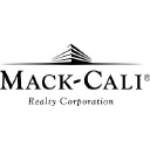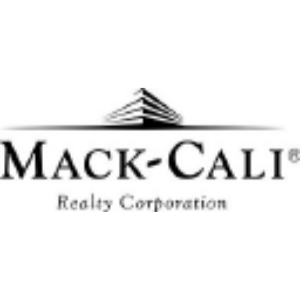Welcome to our dedicated page for Veris Residential SEC filings (Ticker: VRE), a comprehensive resource for investors and traders seeking official regulatory documents including 10-K annual reports, 10-Q quarterly earnings, 8-K material events, and insider trading forms.
The Veris Residential, Inc. (NYSE: VRE) SEC filings page on Stock Titan provides access to the company’s regulatory disclosures as filed with the U.S. Securities and Exchange Commission. Veris Residential is a Maryland corporation that operates as a real estate investment trust (REIT) focused on premier Class A multifamily properties in the Northeast, and it conducts substantially all of its business through Veris Residential, L.P., a Delaware limited partnership. Its common stock is listed on the New York Stock Exchange under the symbol VRE, as noted in its Form 8-K filings.
Through its SEC filings, Veris Residential reports detailed information about its financial condition, operating results, capital structure and material events. Form 10-K annual reports and Form 10-Q quarterly reports contain audited and interim financial statements, segment information, discussions of metrics such as net income (loss) per diluted share, Core Funds From Operations (Core FFO) per diluted share, Core Adjusted Funds From Operations (Core AFFO) per diluted share, Same Store performance metrics and Net Debt-to-EBITDA (Normalized), along with risk factors and management’s discussion and analysis.
Form 8-K current reports for Veris Residential disclose material events and updates, including the announcement of quarterly financial results, the availability of supplemental operating and financial data, the publication of corporate presentations, amendments to the company’s revolving credit and term loan agreement, and other significant transactions. For example, the company has filed Form 8-Ks describing an amendment to its senior secured revolving credit facility and term loan, the consent to certain asset sales, changes in collateral pool properties and the introduction of a leverage-based pricing grid.
Investors can also use SEC filings to track Veris Residential’s capital markets and balance sheet activity, such as the use of non-strategic asset sale proceeds to repay term loans and reduce borrowings under its revolving credit facility, as well as disclosures of leverage targets and progress toward Net Debt-to-EBITDA (Normalized) objectives. The filings further document dividend declarations, governance matters and the structure of Veris Residential, L.P.
On Stock Titan, AI-powered tools summarize and highlight key points from Veris Residential’s filings, helping readers quickly understand the implications of lengthy documents such as 10-Ks, 10-Qs and 8-Ks. Real-time updates from the SEC’s EDGAR system ensure that new filings, including financial results releases, supplemental data exhibits and material agreements, are reflected promptly, while AI-generated overviews assist in interpreting the information for those following this multifamily REIT’s financial and regulatory disclosures.
Veris Residential, Inc.12/31/2025, the director acquired 1,441.518 phantom stock units of Veris Residential under the company’s Deferred Compensation Plan for Directors. These units represent a quarterly director fee plus a quarterly dividend credited on cumulative phantom units and convert into common stock on a one-for-one basis. After this transaction, the director beneficially owned 2,510.833 phantom stock units, which are scheduled to be settled entirely in Veris Residential common stock upon the director’s board service ending or upon a change in control of the company.
Veris Residential, Inc. reported that a director acquired additional deferred equity through phantom stock units. On 12/31/2025, the director was granted 1,692.731 phantom stock units at an exercise price of $0 under the Veris Residential, Inc. Deferred Compensation Plan for Directors. These units convert into Veris Residential common stock on a one-for-one basis and are to be settled entirely in common stock when the director’s Board service ends or upon a change in control of the company. Following this transaction, the director held 25,924.235 derivative securities in the form of phantom stock units, all reported as directly owned.
Veris Residential, Inc. director reports phantom stock award
A director of Veris Residential, Inc. reported receiving 1,841.91 phantom stock units on 12/31/2025 under the company’s Deferred Compensation Plan for Directors. These units convert into common stock on a one-for-one basis and are tied to the company’s common stock with a reference price of $14.88 per share. The filing shows the director now beneficially owns 38,111.544 derivative securities in the form of phantom stock units, held directly. The phantom units represent a combination of quarterly director fees and dividends credited on cumulative phantom stock units, and are to be settled entirely in Veris Residential common stock upon the director’s board service ending or upon a change in control of the company.
Veris Residential, Inc. director A. Akiva Katz reported receiving additional phantom stock units tied to the company’s common stock. On 12/31/2025, he acquired 1,907.928 phantom stock units at a conversion price of
The phantom stock units convert to Veris Residential common stock on a one-for-one basis and are to be settled entirely in shares when his Board service ends or upon a change in control of the company. Following this award, Katz beneficially holds 26,893.346 derivative securities representing phantom stock units, reported as directly owned.
Veris Residential, Inc. director Frederic Cumenal reported an update to his deferred equity holdings. On 12/31/2025, he was credited with 1,838.818 phantom stock units at an exercise price of $0 under the company’s Deferred Compensation Plan for Directors. These units convert to common stock on a one-for-one basis and reflect a quarterly director fee plus a quarterly dividend credited on cumulative phantom stock units.
After this award, Cumenal beneficially owned 37,533.31 derivative securities in the form of phantom stock units, held directly. The units are to be settled 100% in Veris Residential common stock upon his termination from the Board of Directors or upon a change in control of the company.
Veris Residential, Inc. disclosed that Chief Executive Officer and Director Mahbod Nia received an additional grant of phantom stock units on 12/31/2025. The award covers 20.345 phantom stock units at a conversion rate of one-for-one into Veris Residential common stock.
The new units reflect a quarterly dividend credited on cumulative phantom stock units that were previously granted for his service as a director under the company’s Deferred Compensation Plan for Directors. Following this transaction, he beneficially owns 3,804.425 phantom stock units, which are to be settled 100% in Veris Residential common stock upon the end of his Board service or upon a change in control.
Veris Residential (VRE) furnished an Item 7.01 Regulation FD corporate presentation on its website, attached as Exhibit 99.1 to a Form 8-K. The materials are furnished, not filed, are not subject to Section 18 liabilities, and are not incorporated by reference into Securities Act or Exchange Act filings.
The presentation includes forward-looking statements with customary cautionary language, referencing factors listed in Exhibit 99.1. Readers are advised that actual results may differ and to consider the company’s 10-K and 10-Q filings for additional context.
Veris Residential (VRE) reported a sharp turnaround in Q3 2025, posting net income of
Expenses increased modestly, while interest expense was
Total assets were
Veris Residential, Inc. (VRE) furnished materials related to its third-quarter 2025 results. The company provided an earnings press release, a supplemental operating and financial data package for the quarter ended September 30, 2025, and a corporate presentation, each attached as exhibits.
The materials were furnished under Item 2.02 and Item 7.01 of Form 8-K and, along with Item 9.01 exhibits, are not deemed “filed” for purposes of Section 18 of the Exchange Act.
VRE: A selling securityholder filed a Form 144 to sell 85 shares of common stock, with an approximate sale date of 10/16/2025. The filing lists an aggregate market value of
Shares outstanding were 93,421,769. The notice also reports prior sales in the past three months by affiliated entities, including 106,897 shares for


